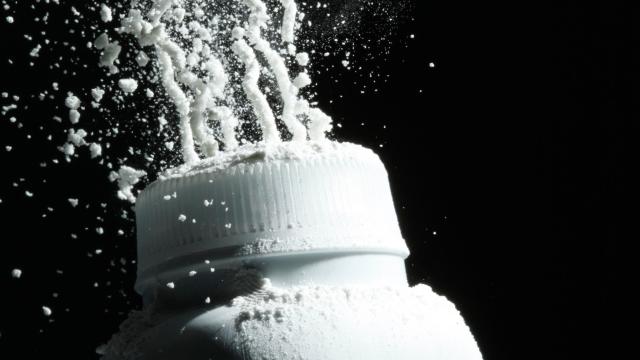Johnson & Johnson, which lost a lawsuit brought by 22 women and their families who claimed their ovarian mesotheliomas were caused by talc products contaminated with the carcinogen asbestos to the tune of $7 billion in July, has failed to have the verdict thrown out on jurisdictional grounds.
According to the New York Times, the ruling was upheld by a circuit court judge in Missouri, Rex Burlison, who oversaw the trial in the case. That doesn’t mean that the $7 billion payout is imminent — Johnson & Johnson will still have an entire appeals process to exhaust.
However, CNBC reported that Burlison wrote in his order that there was “substantial evidence” of “particularly reprehensible conduct” by the company, adding that its management “knew of the presence of asbestos in products that they knowingly targeted for sale to mothers and babies, knew of the damage their products caused, and misrepresented the safety of these products for decades.”
The Times wrote:
The $6 billion in punitive damages and $1 billion in compensatory damages, together one of the largest personal injury awards on record, was upheld by Judge Rex Burlison in a circuit court in Missouri. The plaintiffs — 22 women and their families — were the first to go to court against Johnson & Johnson claiming that their ovarian cancer was linked to asbestos contamination in the company’s talc.
… “The same judge has denied similar motions on prior verdicts in his court that were ultimately overturned by the appellate courts,” [Johnson & Johnson] said. “We are confident this verdict will also be overturned on appeal.”
A damning report last week by Reuters sourced from thousands of pages worth of internal company documents alleged that Johnson & Johnson executives misled the U.S. Food and Drug Administration as to whether they had detected any samples of asbestos from its talc-mining operations.
(Talc, a soft white clay, is often dug up around deposits of asbestos, a category of six different silicate minerals.) Reuters wrote:
In 1976, as the U.S. Food and Drug Administration (FDA) was weighing limits on asbestos in cosmetic talc products, J&J assured the regulator that no asbestos was “detected in any sample” of talc produced between December 1972 and October 1973. It didn’t tell the agency that at least three tests by three different labs from 1972 to 1975 had found asbestos in its talc – in one case at levels reported as “rather high.”
Another report in the New York Times alleged that executives at Johnson & Johnson had been repeatedly warned that asbestos could be slipping into their talc products, with internal documents, interviews with scientists and lawyers, and government records showing managers “proposed new testing procedures or replacing talc outright, while trying to discredit research suggesting that the powder could be contaminated with asbestos.”
In general, scientists have never determined a clear link between talcum powder products and cancer, though asbestos-contaminated talc is clearly a problem. The World Health Organisation has recognised the latter as a threat to public health.
(As Slate noted, “mesothelioma remains a rare cancer” even among factory and mining workers that do come into contact with asbestos on a regular basis.)
As the Times noted, nearly 12,000 plaintiffs have sued Johnson & Johnson over the years. But the company has won all but one of the few verdicts against it in the appeals process—many because the plaintiffs asserted talc itself rather than asbestos was carcinogenic—and successfully avoided paying out damages in any of them so far.
According to the Reuters report, in one case brought by former customer Darlene Coker in 1997, the company successfully suppressed internal documents such as a letter from a Rutgers University geologist confirming the presence of small amounts of asbestos in its Baby Powder product.
Watch Johnson & Johnson Chairman & CEO Alex Gorsky respond to the recent news coverage on talc. Learn more: https://t.co/3MzU7i1UA7 pic.twitter.com/hexSCyVpTW
— Johnson & Johnson (@JNJCares) December 17, 2018
In a statement to Gizmodo last week, Johnson & Johnson wrote that the Reuters report was “one-sided, false and inflammatory” and an “absurd conspiracy theory.” It added that its baby powder is “safe and asbestos-free,” as well as that “[t]housands of independent tests by regulators and the world’s leading labs prove our baby powder has never contained asbestos.”
The company also turned to a tactic that has raised some eyebrows: directing customers to a website called “factsabouttalc.com.” The Times noted that “until recently,” the site had language stating it was “it’s easy to be swayed one way or another” by new studies or scientific findings.
